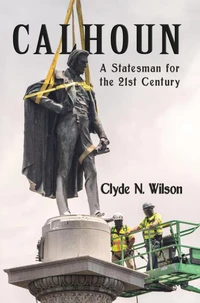The African American servitude that ended more than a century and a half (about 6 generations) ago has still today a powerful emotionally-driven presence in American public life. Many who use the term "slavery" have no real knowledge of what life was like for Americans, black and white, in times past. The position of Africans in America has long presented a moral challenge. In what became the United States, bondage of the black African race existed for about two and a half centuries-in other parts of the world, including Africa, it existed much longer. The subject of slavery today is entwined with unhealthy and present-centered emotions and motives-guilt, shame, hypocrisy, projection, prurient imagination, propaganda, vengeance, extortion, virtue signaling.
It cries out for long-range historical examination. And that examination, in spite of what is widely thought, provides no guidance for the problems we face today.
The African American servitude that ended more than a century and a half (about 6 generations) ago has still today a powerful emotionally-driven presence in American public life. Many who use the term "slavery" have no real knowledge of what life was like for Americans, black and white, in times past. The position of Africans in America has long presented a moral challenge. In what became the United States, bondage of the black African race existed for about two and a half centuries-in other parts of the world, including Africa, it existed much longer. The subject of slavery today is entwined with unhealthy and present-centered emotions and motives-guilt, shame, hypocrisy, projection, prurient imagination, propaganda, vengeance, extortion, virtue signaling.
It cries out for long-range historical examination. And that examination, in spite of what is widely thought, provides no guidance for the problems we face today.

 , qui est-ce ?
, qui est-ce ?